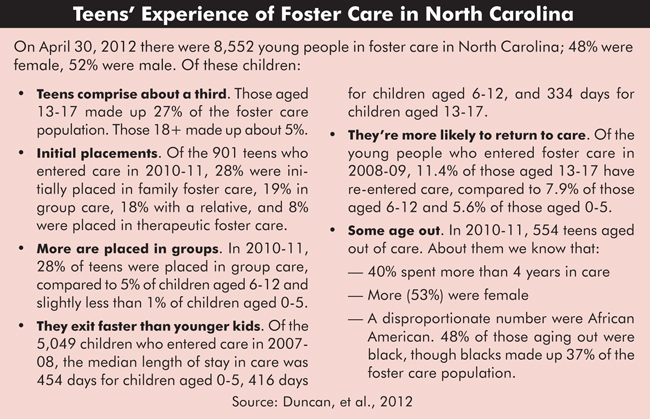According to Havighurst (1972), adolescence (age 13-18) is a time when major developmental tasks include:
- Achieving new and more mature relations with age-mates of both sexes;
- Achieving a masculine or feminine social role;
- Accepting one's physique and using the body effectively;
- Becoming emotionally independent of parents and other adults;
- Selecting and preparing for an occupation;
- Preparing for marriage and family life;
- Desiring and achieving socially responsible behavior; and
- Acquiring a set of values and an ethical system as a guide for behavior.
Accomplishing these tasks is tough in the best of circumstances. When teens experience maltreatment and encounter the child welfare system, it can be even harder.
Our job as child welfare practitioners is to make it possible for the teens we work with to develop to their full potential. We do this by keeping them safe, helping them achieve permanence, and attending to their physical, educational, and social-emotional well-being.
It’s a big job. To support you, this issue of Practice Notes explores teen brain development, considers ways to strengthen teens’ relationships, offers tips for responding to runaways and human trafficking victims, and suggests strategies for making sure their voices are heard during child and family team meetings (CFTs).
We hope this information—and the insight and reflection it inspires—will help you ensure the adolescents you work with get what they need to succeed in life.

Contents of this Issue